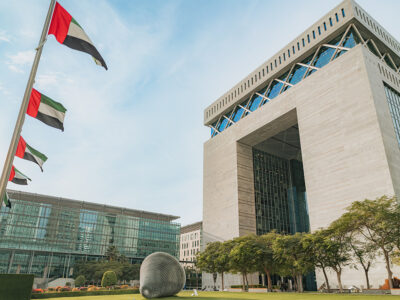So now you have the Rolex, the latest super car and even a private jet at your beck and call, but you’re still not part of the super rich elite if you don’t have your very own luxury superyacht.
According to a research carried out by Wealth-X, a leading intelligence provider for ultra high net worth individuals (UHNW), superyachts are the most popular luxury asset among top billionaires. Compiling a list of the top ten most expensive billionaire luxury asset acquisitions of all time showed that eight of the ten purchases were of private superyachts, making this hot ticket item the most sought-after billionaire asset.
The world of luxury yachting is a popular lifestyle in the Middle East. The UAE is home to the world’s largest megayacht, Azzam, which is worth an estimated $630m.
“It’s the ultimate symbol of success. While a house is a necessity, that can also be an investment if purchased in the right place, and a plane can be run as a business entity, but a yacht is purely a luxury item,” says Rory Trahair, head of marketing at Edmiston Yachts.
“People aspire to own a yacht, that’s their great target, and once they’ve got that, it’s the ultimate signature of opulence. Such a small sector of the world can get a hold of that. I think once you got that, you’re in an elite crowd and you stand alone — which is where these guys want to be positioned,” Trahair adds.
Edmiston, a leading player in the yacht industry, provides sales, charter and management of yachts and their manufacturing. The Monaco-based yacht broker started its business in 1996, from a tiny flat, with only one mobile phone to share.
Edmiston was catapulted to success in the early 2000s, due to a significant growth in demand from the Russian market.
Now the company sells up to 30 yachts a year out of their six global offices, which include New York, London and Antibes. However, Edmiston chose to shut their Abu Dhabi location recently.
“There wasn’t enough activity to warrant an office here,” says Trahair.
“Many Middle Eastern clients don’t spend the summer here; they spend their summers in the south of France. So if we can come out here during their winter and also see them when they’re in the south of France, then you’ve killed two birds with one stone without the cost of having an office here,” Trahair states.
According to Trarair, although Gulf clients represent a small volume of Edmiston’s business, they bring in a high percentage of the company’s total income because they are big spenders.
“You’ve only got to look at the yachts around here, who they’re owned by and their scale of luxury. When GCC clients choose to go into yachting, they tend to go big.
“In Europe, we are selling yachts from 30 metres and up, whereas here, they go straight into over 70-80 metres. That’s because there is plenty of wealth here and high disposable income here that our clients in the US and Europe no longer have. I think the amount of wealth in the Middle East is exceptional, but the volume of people that have it is relatively small.”
Article continued on next page…
Another reason why the yachting lifestyle is so desirable in this region is due to its cosmopolitan nature. Unlike a hotel, where you have to stay in one place for your entire trip, a yacht provides the possibility of mobility. Owners can have lunch in St. Tropez and dinner in Cannes, for example.
“Middle Eastern clients have no fixed abode. They spend some time here, some time in Monaco, they usually have a base in London, and otherwise they’re in the air or on their boat, moving from one destination to the next,” explains Trahair.
Edmiston has many clients from this region, mostly between the ages of 30-80, but lately they have been witnessing a new and unusual trend.
“We’ve got clients of all ages. We’ve seen increased interest from teenagers. They’re starting to pick up on the yacht industry from various forms of social media, and the influence of children on their parents is immense,” Trahair explains.
“They express interest to their parents who in turn end up contacting one of our team members for charter or purchase. This is a very cool new angle of things that we haven’t seen before,” he adds.
“The children of billionaires are our clients of tomorrow and that’s what we need to be looking at — depending on whether their father gives their entire wealth to charity — obviously I’d like them to do both.”
Trahair gives some examples of uber lavish requests by parents on behalf of their children: “A client wanted an ice rink on deck in the middle of summer in the south of France for their daughter’s birthday, with happy birthday written in it so you can read it from the helipad… And you just got to do it!”
But this lifestyle is no longer reserved for just the billionaires of the world and their children.
“If you can afford a mid-range luxury car, you can afford a boat,” says Nino Dreger, regional sales manager of Larson Boat Group.
“When people think about boats they think, luxury, multi-million dollar, can’t afford it, and our aim is to change these perceptions and give people a chance to experience the thrill of having a speed boat,” Dreger says in reference to their lineup of super speed boats.
People have this concept that boating is very expensive, but according to Dreger, you can own a boat like Larson’s LXi for less than $1,400 a month.
Granted, it’s not exactly a 70 metres yacht experience, but it still provides the luxury and thrill of being on the water, and more importantly, the opportunity to discover the beauty of this lifestyle.
Article continued on next page…
Demand for quality staff rises in the Gulf
With the Middle East dominating the list of the world’s largest superyachts, demand for quality trained staff has increased and a UK-based firm has set up a special academy to cater to this niche market.
The London-based Bespoke Butler Academy provides butlers and housekeeping staff for private or a chartered yachts and staff can earn from $50,000 to $160,000 per year plus benefits, with virtually no expenses to worry about.
“The really rich are not getting affected by economic issues, they’re just getting richer,” says Sara Vestin Rahmani, the founder of Bespoke Bureau. “And they want to spend their money on what keeps their family comfortable and safe.”
To cater to the growing number of superyachts in ownership in the region, the company has set up an exclusive yacht training academy on the coast of the Antibes, the Mediterranean French province located between Cannes and Nice.
In partnership with marine recruitment experts Abacus & March, the courses include an intense five-day training programme on etiquette, greeting, serving cocktails, yacht safety and simulation runs.
This niche market is booming and interest is growing in the Middle East and internationally, with around 30 percent of Bespoke Bureau’s clients coming from the Middle East.
While Sheikh Mohammed Bin Rashid Al Maktoum’s luxury 162-metre long Dubai yacht may need up to 88 crew and the Saudi royal family’s 147-metre long Prince Abdulaziz yacht may need 65, the average Arab yacht owner generally requests an average of six to seven crew members per yacht.
Despite the high salaries and luxurious settings, Rahmani says there are definitely challenges that a butlers at sea faces on a day-to-day basis. “They have to work hard, long hours, let things wash over them and so on… It takes an exceptional type to last,” she says.
“Butlers get weird requests, like make me a Burger King Burger in the middle of the night… I’ve known butlers to fly in food at odd hours when not able to make it themselves. The budgets are huge,” she reveals.
One advantage of being a butler on a yacht over a household is that contracts are usually short term due to the nature of the industry.
Yacht owners in the region also tend to staff not only their locally docked yachts, therefore, the academy has had requests for British-trained butlers and nannies to be assigned to their properties and yachts abroad.
Article continued on next page…
“Dubai is one of the easiest places to relocate to especially for western nationalities to be sponsored by our high net worth clients. Competition is getting harder for all industries in Dubai apart from ours,” she states.
“There are more and more great job prospects in Dubai for our candidates. We recruit and train five star hotels, member clubs, exclusive households and restaurants so it’s great for us.”
For land-based butlers and housekeeping staff, the Bespoke Bureau does its training Morley Old Hall in Norfolk and the company’s London headquarters at Blackwell House, a listed building at Guildhall Yard.
“There is huge demand and we have a waiting list from private houses and hotels in the emirates and Saudi Arabia,” Rahmani claims.
Training courses for staff start from £800 ($1,282) for two days and up to £6,000 ($9,619) for a six-week course.
In addition to butlers and housekeeping staff, the agency also places governesses in Arab homes to educate and discipline children.
“In the Middle East we have been placing Mary Poppins-style nannies for many years and we have seen a similar market, it is the people who want their children to speak a certain way and be educated a certain way,” she says.
The agency’s top earning butler is based in Saudi Arabia, where he earns £150,000 ($240,487), she says.
“It is a trade where you can earn a lot of money without being very academic and there is not many professions in the world you can earn that kind of money without a [third-level education].
“These people are very service minded and well mannered. People we place overseas earn around £65,000 and the top end at £100,000. We have people who earn more than that but that is unique.”
The agency has also introduced one-on-one etiquette training for Arab businessmen, “so when he travels to Europe he knows how to dine and greet people,” Rahmani adds.








